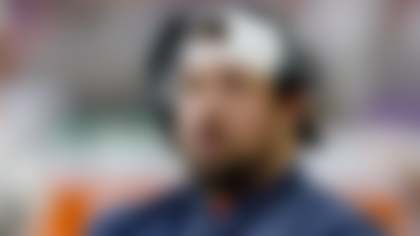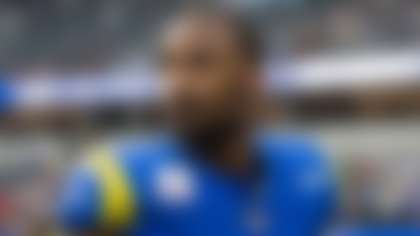BALTIMORE -- While it might come as a surprise to those who've come to expect drama from the Redskins' organization, the latest perceived mess involving Robert Griffin III might merely be the result of bad communication as opposed to a greater conspiracy.
One day after the sports world is scratching its collective head about an independent neurologist's decision to reverse course on Griffin's playing status -- ultimately sidelining him for Saturday's third preseason game -- there's a reasonable explanation for it all.
According to sources close to Griffin -- and contrary to general comments made by Redskins coach Jay Gruden during an appearance on NFL Network on Friday -- the league-mandated independent neurologist never made any conclusions on Griffin's status until Friday.
Griffin underwent several baseline tests from doctors unassociated with the league's concussion protocol, but none of those tests are deemed material to the league's assigned neurologist, sources said Saturday. The league allowed Griffin to practice without contact after passing baseline tests, but that is not the same as receiving in-game clearance.
The communication from the Redskins on two different occasions -- first from Gruden during his interview and again from a nuanced statement released by the team quoting the NFL's independent neurologist -- created a sense of confusion regarding the motives of the decision.
But a further look reveals a less dramatic story.
First, Gruden's comment: "He is cleared from all the doctors, the neurologists -- they've been cleared."
The problem is, Gruden was wrong. While the independent neurologist, Dr. Robert Kurtzke, noted in his statement that he "had anticipated yesterday that the patient would be cleared for full participation," his anticipation caused Gruden to jump the gun on his public comments.
And second, the nuance within Kurtzke's statement, which had no context from the team surrounding it, never explained that the neuropsychologists cited by Kurtzke were not associated with the league's concussion program. The other named listed, Anthony Casolaro, is a Redskins team doctor.
While Griffin does not believe he suffered a concussion, people close to the quarterback have since explained that it doesn't matter what he or the team doctors think -- it is exclusively the decision of the league-mandated independent neurologist that determines Griffin's status.
"This is not a conspiracy (by the Redskins)," a source close to Griffin said Saturday.
So while this does not necessarily mean Saturday's game could open the door for Cousins to push Griffin for the starting job, Griffin's camp at least is convinced the Redskins are not deliberately using the concussion as a way to create that opening.
That is an important distinction since it would be an extremely problematic situation, potentially even prompting yet another NFL investigation, if the Redskins were deliberately undermining the concussion protocol.
It does not appear -- at least to many well-informed sources on both sides of the situation -- that is the case here. Instead, it is another example in which a better use of facts and communication -- both internally and externally -- could have eased the drama that unnecessarily unfolded Saturday afternoon.
Griffin, the sources said, has no intention of asking for a trade or to be released. Instead, he is hopeful he will be cleared to play before Week 1, also maintaining hope that he will remain the starting quarterback when the season begins.
That part, however, is out of his hands.
Follow Jeff Darlington on Twitter @JeffDarlington.











